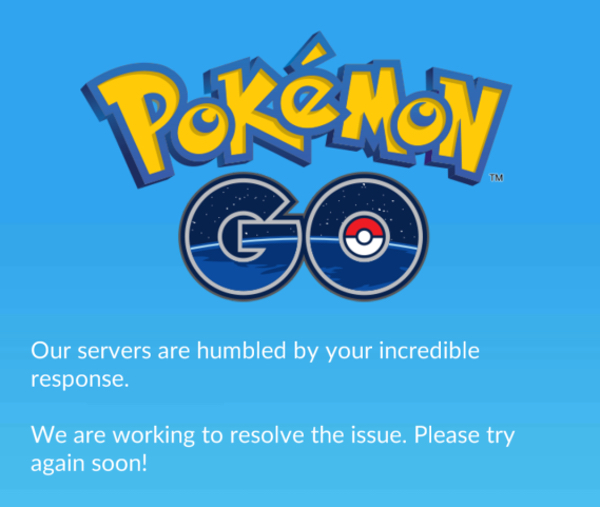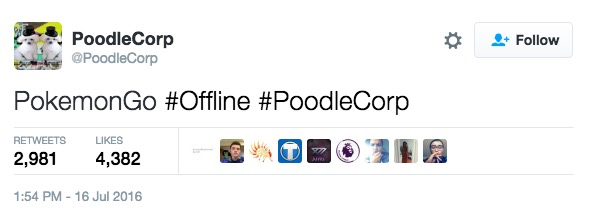Hackers have claimed responsibility for problems experienced by players of the hugely-popular smartphone game Pokémon GO this weekend.
Avid gamers found to their frustration that their attempts to chase down cartoon critters were disrupted by the Pokémon servers being offline for a period of time over the weekend.

Pokémon GO
Our servers are humbled by your incredible response.
We are working to resolve the issue. Please try again soon.
So, what caused the downtime?
First up is the notorious OurMine hacking group - which has made something of a name for itself in recent months breaking into the social media accounts of the likes of Mark Zuckerberg, and Google's Sundar Pinchai amongst others.
In an interview with TechCrunch, OurMine appeared to take credit for a distributed denial-of-service (DDoS) attack against the game's servers.
Meanwhile, a rival hacking group known as PoodleCorp has also claimed responsibility for Pokémon GO's downtime.

In a YouTube interview, a member of PoodleCorp claimed that they would be taking down all of Pokémon GO's servers for 24 hours on August 1st, as a proof that they were responsible for the attacks and disrupting gamers.
So, make a note in your diary folks ...
Asked what the point of PoodleCorp was, the alleged member of PoodleCorp said simply "Chaos".
By Sunday morning, the official Pokémon GO Twitter account was advising that the issue had been resolved, but made no mention of any DDoS attack or the claims made by the hacking gangs.
So, was Pokémon GO knocked offline by a denial-of-service attack or simply a victim of its extraordinary success? At the moment, the only people who know for certain are likely to be Nintendo and Niantic, the company which develops the game and runs its servers.
As Pokémon GO has been rolled out to more countries around the world, and more people install it to see what all the fuss is about, chances are that its servers will be tested once again. The game's sheer popularity, until people grow bored of the fad and move on to something else, is likely to continue to make the game slightly glitchy and may - on occasions - mean that its servers can't take the strain.
And frankly, that would be hard to distinguish from a denial-of-service attack to much of the outside world.
Of course, if Pokémon GO was hit by a DDoS attack it won't be the game's first run in with cybercrime.
The much-hyped game has already had fake versions made of itself containing malware, and apps appear in the official Google Play store that lock Android screens. No doubt there will be more threats to come.
Please be sure to read and follow our tips on how to play Pokémon Go safely.




